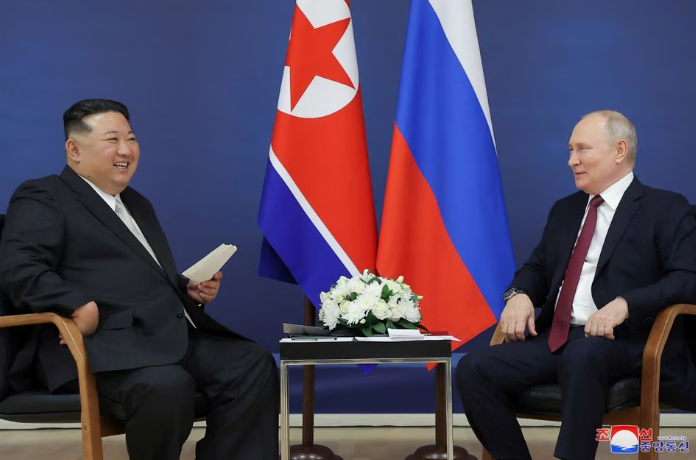Russian President Vladimir Putin and North Korean leader Kim Jong-un have reaffirmed their commitment to strengthening defence cooperation, even as both nations denied allegations of planning a weapons exchange. This development comes as a notable diplomatic move with potential implications for regional dynamics.
Despite recent U.S. claims suggesting intentions of a weapons exchange between Russia and North Korea, both countries have firmly denied these allegations. Instead, they have publicly pledged to deepen their defence collaboration, with President Putin announcing Russia’s assistance in the North’s satellite development efforts.
Experts, however, question the necessity of a face-to-face meeting between the two leaders if their intent was merely a covert arms deal. Leif-Eric Easley, a professor at Ewha University in Seoul, suggested that the meeting may have broader geopolitical implications. Easley highlighted that beyond any potential secret agreements, Kim’s engagement with Putin sends a clear signal to Washington, Seoul, and Tokyo that Russia stands as a supportive ally in Northeast Asia.
This diplomatic engagement between Russia and North Korea adds an intriguing layer to the complex geopolitical landscape in the region, as international observers continue to monitor developments and their potential consequences on global security and diplomacy.








 India
India












